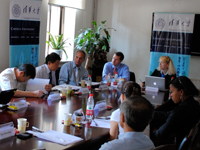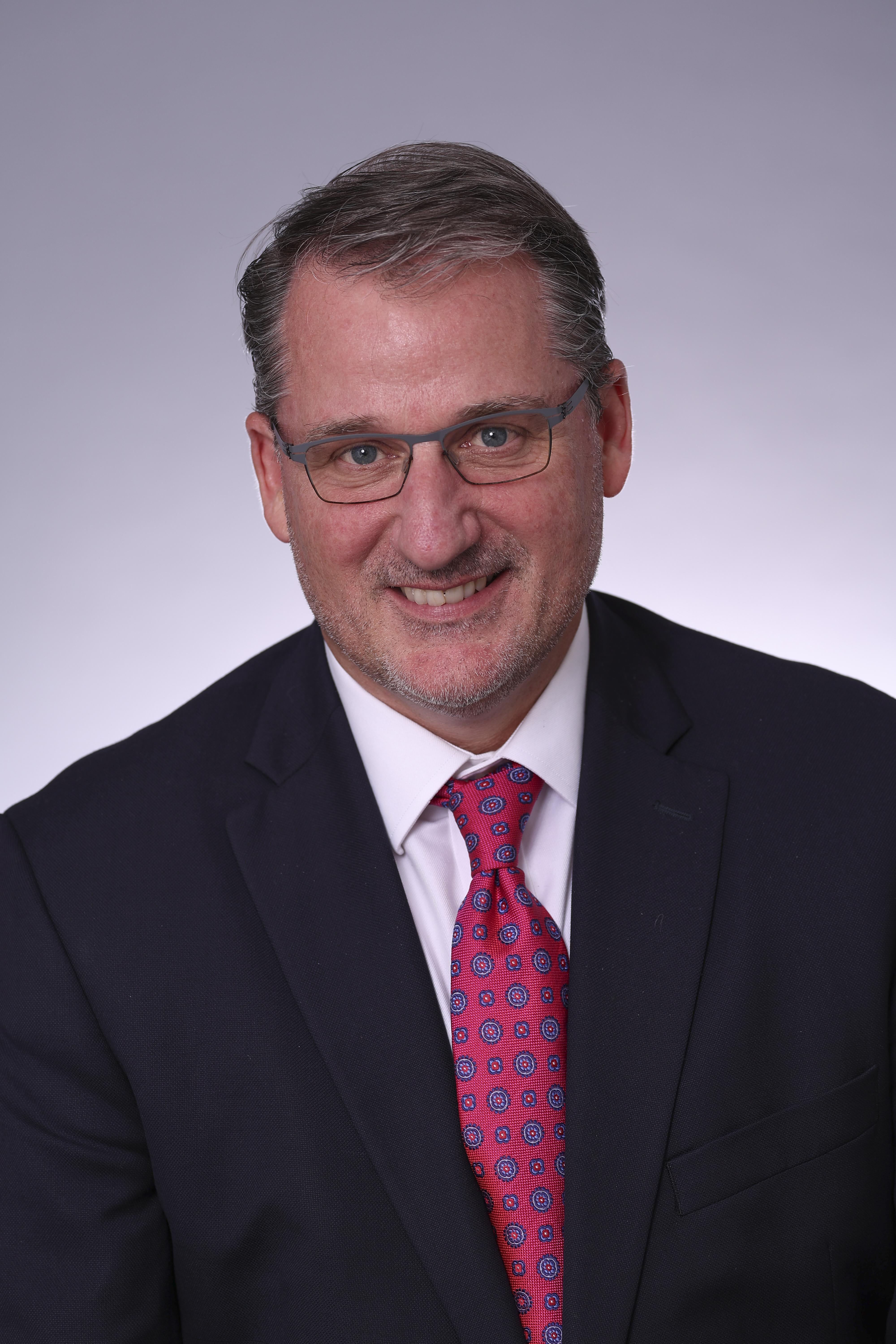{
"authors": [
"Paul Haenle",
"Lora Saalman",
"Martin Schoenbauer",
"Li Hong",
"Gu Guoliang",
"Hu Yumin",
"Fan Jishe",
"Meredith Sumpter"
],
"type": "event",
"centerAffiliationAll": "",
"centers": [
"Carnegie Endowment for International Peace",
"Carnegie China"
],
"collections": [
"China’s Foreign Relations"
],
"englishNewsletterAll": "",
"nonEnglishNewsletterAll": "",
"primaryCenter": "Carnegie Endowment for International Peace",
"programAffiliation": "",
"programs": [],
"projects": [],
"regions": [
"East Asia",
"China"
],
"topics": [
"Foreign Policy",
"Nuclear Policy",
"Security",
"Arms Control"
]
}
Arms Control Spring in Beijing
Thu, July 8th, 2010
Beijing
IMGXYZ2642IMGZYXU.S. President Barack Obama’s agenda for reducing nuclear dangers and pursuing a world without nuclear weapons in his April 2009 speech in Prague set the pace for the series of high-level arms control meetings during the spring of 2010. China plays an increasingly important role in achieving a number of the goals contained within the U.S.-Russian New Strategic Arms Reduction Treaty (New START), UN Nuclear Security Summit, U.S. Nuclear Posture Review (NPR) and NPT Review Conference (NPT RevCon). The Carnegie-Tsinghua Center for Global Policy hosted an event to facilitate discussion among Chinese and U.S. experts on their reactions to the new and old trends that emerged during what has become known as the “Arms Control Spring.” Particular attention was paid to the U.S. NPR and NPT RevCon. The seminar was moderated by Carnegie’s Lora Saalman.
U.S. Nuclear Posture Review
The U.S. Nuclear Posture Review (NPR) is a document used to establish nuclear policy, nuclear weapon use strategy, capabilities and force posture or readiness. The document released in April 2010 marked the third NPR to be issued since the end of the Cold War and the first released to the public in its entirety. The five main objectives cited in the NPR are preventing nuclear proliferation and nuclear terrorism, reducing the role of nuclear weapons, maintaining deterrence capability at reduced nuclear force levels, strengthening regional deterrence and reassurance of U.S. allies and partners, and sustaining a safe, secure and effective nuclear arsenal.
- U.S. New Vision: One of the primary goals of releasing the entire NPR to the public, as noted by a U.S. Embassy official in attendance, was to increase transparency. Among other U.S. advances on combating proliferation and nuclear terrorism, he highlighted efforts to secure nuclear and radiological materials worldwide within four years, the Megaports Initiative, which aims to deter, detect, and interdict illicit trafficking in nuclear and other radioactive materials transiting the global maritime shipping system, and de-MIRVing of nuclear warheads as significant advances.
- New Momentum: Chinese participants advocated the overall shifts that have occurred in U.S. nuclear policy. One in particular lauded the “new vision” undertaken by the United States allowing it to reassume its leadership role on nonproliferation. He expressed the hope for introduction of concrete measures and new momentum on such lingering issues as deadlock at the Conference on Disarmament (CD) and the Comprehensive Test Ban Treaty (CTBT).
- Threat Perceptions: In assessing proliferation and terrorism threats and their impact on China, one Chinese expert refrained from using “common interests” to describe these similarities, but rather suggested that China and the United States shared “parallel interests” in confronting such threats. These issues set the foundation for bilateral and multilateral cooperation, but also indicate that some noteworthy differences still exist, including differing views on the severity of, and the measures for dealing with challenges presented by on the DPRK and Iran. He maintained that the Obama administration’s reaction to both countries has been “more harsh” than anticipated.
- Negative Security Assurances: The reduced role of nuclear weapons in the new NPR received mention by several Chinese experts. Declaration of the non-use of nuclear weapons against non-nuclear weapons states (NNWS) in compliance with their NPT obligations, use of nuclear weapons only in “extreme circumstances,” and reduced U.S. nuclear force structures were listed among positive steps forward. They noted that these shifts stood in marked contrast to the Bush administration’s stance that such weapons may be used in response to biological and chemical weapons attacks.
- Reduced Role: One Chinese participant lauded the fact that the NPR no longer openly designates China as a target of nuclear attacks. While noting that the NPR increasingly limits the role of nuclear weapons, he stated that this was far from enough. If the goal of the United States is to reduce reliance on nuclear weapons, ongoing resistance on the part of the United States to making a No-First-Use (NFU) declaration remains out of line with its stated intention.
- No-First-Use: A Chinese expert noted that the concept of NFU first emerged from an American strategist in the 1950s. He questioned seemingly entrenched U.S. refusal to accept a policy of NFU. Delay of release of the NPR led to some speculation in China that this had to do with internal debate over U.S. posture on NFU. Questions remained over the nature of U.S. extended deterrence as contained in the new NPR in relation to Taiwan.
- Nuclear Modernization: One Chinese analyst noted that nuclear weapons continue to play a vital role in U.S. security calculus and, moreover, questioned the scope and capabilities of new nuclear warheads under development. This line of questioning sought a better-defined concept of nuclear modernization from the United States. While the NPR makes note of the United States pledge not to engage in the development of new nuclear weapons, no concrete measures have been undertaken as of yet to ensure a degree of irreversibility.
- U.S. Expenditure Increase: The “significant” increase of U.S. nuclear expenditures, including ongoing U.S. maintenance of a nuclear triad and ballistic missile defenses, received particular attention from the Chinese panel. One U.S. Embassy official stressed that expenditure increases were directed at maintenance of older systems, supercomputers that preclude the necessity of nuclear testing, nuclear arsenal reductions, and physical security. Allocation of funding for weapons had not increased, he argued, while expenditures related to weapons dismantlement had. When it came to nuclear modernization, the U.S. Embassy official noted that in comparison with the U.S. life extension program for its existing nuclear arsenal that both China and Russia were engaged in more active nuclear modernization.
- Strategic Stability: The NPR’s emphasis on enhanced cooperation with China and the concept of strategic stability received attention from one Chinese participant. Efforts to engage Russia on nuclear arsenal reductions and reframing of nuclear cooperation with China and Russia by placing confrontational aspects of trilateral relations on the “back burner” were among the measures noted as drawing the three countries closer together. Still, several Chinese experts noted that there remain significant differences between Russia and China. While some degree of cooperation might be possible, another Chinese analyst questioned the degree to which the United States would be willing to accept mutual vulnerability with China.
- Conventional Weapons and BMD: One Chinese expert cited the role of Prompt Global Strike as a detriment to the progress made in U.S. nuclear policies. Another noted that while the United States has reduced the role of nuclear weapons in its new NPR, it retains dominant conventional weapons capabilities and the largest nuclear arsenal. Several Chinese participants also expressed concern over the willingness of U.S. Democrats to accept the ballistic missile defense (BMD) program and continue its development. While noting that some concessions had occurred on BMD that might appease Russia, China remains unconvinced.
- Political Constraints: Another Chinese participant noted the importance of the United States not simply “making slogans for publicity” on nuclear issues, but rather engaging in actions that reflected these postural shifts. In particular, he questioned whether or not a nuclear free world would be feasible if the United States is unable to reduce its nuclear weapons numbers under 1,000. Another Chinese analyst noted that there had been no concrete steps on the part of Russia and the United States on the nuclear issue.
- Parallel Interests: Numerous Chinese attendees inquired about public response and political will in the United States regarding the NPR. A U.S. Embassy official noted that significant stockpile reductions had also occurred under the Bush administration. While the START treaty was more negotiation-intensive than the Moscow Treaty, both U.S. administrations had not always common, but “parallel interests” when it comes to arms control.
NPT Review Conference
The NPT Review Conference (NPT RevCon) reviews the operation of the Treaty on the Non-Proliferation of Nuclear Weapons (NPT) and has been held at five-year intervals since the NPT went into effect in 1970. Key issues for discussion during the this year’s conference included: universality of the NPT, nuclear disarmament, promoting and strengthening of safeguards, advancement of the peaceful use of nuclear energy, safety and security, regional disarmament and nonproliferation, the 1995 resolution on the Middle East; measures to address withdrawal from the NPT, strengthening of the review process, and a means to promote engagement with civil society.
- Disarmament Timetable: In providing an overview of the NPT RevCon, a Chinese expert categorized the outcome of the meeting as a “modest success.” Discussion of an agreed schedule for eliminating all nuclear arsenals served as a positive sign of growing pressure on the NWS to implement their NPT commitments, yet the final report stopped short of a timetable. He called upon NWS to accelerate concrete progress, to report their undertakings to the PrepCom Meeting in 2014, to review next steps for full implementation of Article VI at the NPT RevCon in 2015 and to strengthen the agreed action plan.
- Middle East NWFZ: Review the progress of 1995 Middle East resolution and the mandate of the U.N. Secretary-General and relevant state parties to convene a conference in 2012 for discussion of the establishment of a Middle East Nuclear Weapon Free Zone (NWFZ) was hailed as a “positive step in the right direction” by one Chinese participant. Several members of the audience inquired as to the level of U.S. commitment to the 2012 conference on a Middle East NWFZ, to which a U.S. official in attendance replied that the United States will accord full priority to this meeting.
- Nuclear Weapons Ban: Citing paragraph 82 of the final report on nuclear disarmament, a Chinese expert noted the importance of a nuclear weapons convention “backed by a strong system of verification.” He voiced his “strong impression” that the call for a convention banning nuclear weapons has received historic support from civil society and numerous state parties. Noting pursuit of a nuclear weapon free world through a legal instrument “should not be regarded as impossible,” he cited both the Biological Weapons Convention (BWC) and Chemical Weapons Convention (CWC) as examples.
- NPT Noncompliance: One of the Chinese experts reserved criticism for the mechanism for dealing with NPT noncompliance. He specifically noted the “strong expectation” that a country like the DPRK, which has a record of noncompliance should not be allowed to easily withdraw from the NPT to develop nuclear weapons. He advocated automatic UNSC council involvement in the investigation of and decision for punishment of NPT obligation violations, expressing dismay that the NPT RevCon remained unable to make any substantive progress on this issue.
- Additional Protocol: The inability to set the Additional Protocol (AP) as the new standard for IAEA safeguards was lamented by one Chinese analyst. He emphasized that as technology continues to develop, setting new verification standards should be the mandate of the NPT RevCon. He further expressed concern that no mandatory commitment on AP had been issued within the final report.
- Fuel Cycle Activity Limits: Limitation on nuclear fuel cycle activities is a major issue to be dealt with at the NPT RevCon, according to one Chinese expert. While the NPT did not exclude any fissile material production capability for peaceful purposes, past experience demonstrates that enrichment and reprocessing are very sensitive activities with high proliferation risk. One of his major disappointments was the inability of the conference to find common ground on establishing a multilateral fuel bank and regional reprocessing center.
- India and NAM: One of the U.S. participants provided an overview of the shift occurring at the NPT RevCon between India and the Non-Aligned Movement (NAM). India, while remaining outside of the NPT regime, served as a founding member of NAM. Yet, at the 2010 RevCon, India became a target of NAM criticisms of the U.S.-India nuclear deal. While largely focused on U.S. and Nuclear Suppliers Group (NSG) double standards, these critiques still impinged upon Indian interests, as argued by the U.S. participant. In effect, the United States and NAM reversed their roles at the NPT RevCon, with the United States defending India’s position as a recipient of nuclear cooperation and NAM refuting it.
- Ad Hoc Controls: Citing ongoing doubts among Indian experts regarding the NPT regime and the RevCon process, the U.S. participant contended that the U.S.-India Civil Nuclear Deal increased the regime’s irrelevance for India. India’s own ad hoc nuclear cooperation following the U.S.-India nuclear deal, with Russia in March 2010, Canada in June 2010, etc., similarly contributed to an increasing move towards ad hoc controls. Rather than bringing India under the larger NPT umbrella, exceptionalism has increasingly become the rule.
- Litmus Test: The vocal reaction of Indian experts and government to the Sino-Pakistani civil nuclear deal, forces the issue of Indian participation in the NPT regime process. U.S. and NSG reactions could serve as a litmus test, as argued by the U.S. participant. Such that, if Indian experts and leadership continues to see nuclear cooperation and security coming from ad hoc sources, it is unlikely to ever trust effectiveness of NPT system as a whole.
Carnegie does not take institutional positions on public policy issues; the views represented herein are those of the author(s) and do not necessarily reflect the views of Carnegie, its staff, or its trustees.
Event Speakers
Paul Haenle held the Maurice R. Greenberg Director’s Chair at the Carnegie Endowment for International Peace and is a visiting senior research fellow at the East Asian Institute, National University of Singapore. He served as the White House China director on the National Security Council staffs of former presidents George W. Bush and Barack Obama.
Saalman was a nonresident associate in the Nuclear Policy Program at the Carnegie Endowment for International Peace. Her research focuses on China’s nuclear and strategic policies toward India, Russia, and arms control.
Martin Schoenbauer
Li Hong
Gu Guoliang
Hu Yumin
CACDA
Fan Jishe
Fan Jishe is the division director of strategic studies and deputy director of the Center for Arms Control and Nonproliferation Studies at the Chinese Academy of Social Sciences.
Meredith Sumpter

